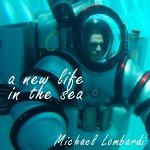 After motoring through the early chapters of Will Hart’s ‘The Genesis Race’, I’m somewhat compelled to briefly discuss the concpet of ‘panspermia’. The book begins with tackling the ever so controversial topics of evolution and organized religion – and digging deep to identify where the two subjects intertwine. Along this discussion, we are introduced to to the theory that humans may not have evolved entirely from the raw materials found here on Earth; suggesting that from the days of the primordial ooze that allegedly gave rise to all life on Earth through to today is not enough time to evolve (by definition) via random chance and genetic mutation.
After motoring through the early chapters of Will Hart’s ‘The Genesis Race’, I’m somewhat compelled to briefly discuss the concpet of ‘panspermia’. The book begins with tackling the ever so controversial topics of evolution and organized religion – and digging deep to identify where the two subjects intertwine. Along this discussion, we are introduced to to the theory that humans may not have evolved entirely from the raw materials found here on Earth; suggesting that from the days of the primordial ooze that allegedly gave rise to all life on Earth through to today is not enough time to evolve (by definition) via random chance and genetic mutation.
Hart’s Chapter 3 discusses all this and references a 1983 book (Life Itself: its Origin and Nature) by Francis Crick (of Watson and Crick – DNA double helix notoriety) which describes why life could not have evolved here on Earth. So where did it come from? According to Crick, and others, the building blocks for life were introduced via a random ride from an asteroid or other debris entering Earth. This effectively seeded early evolution – be it for all life, or the human leg of the record. This may sound far fetched except that there has actually been recent work done on the subject with organic compounds and amino aicds found in crashed meteroites, lending some creedance to the theory. This is the foundation for the panspermia theory – where life has been seeded from some unknown of extraterrestrial source.
The truly complicating piece is our uniqueness in having free will and having the aptitude to innovate at a high intellectual capacity. If we are able to sustain our species and continue to evolve, it is quite likely that we arrive at an intellectual state that parallels a far off highly advanced civilization that may have seeded Earth to begin with in an effort to save itself. Hard to swallow, but food for thought nonetheless.
Still, I question our presence here on the Blue Planet and wonder why we are effectively trapped on land. Why look to the heavens to save our species when our nearest opportunity is right in our backyards…
Useful References
Crick, F., & Orgel, L. (1973). Directed panspermia Icarus, 19 (3), 341-346 DOI: 10.1016/0019-1035(73)90110-3
Spaargaren, D. (1985). Origin of life: Oceanic genesis, panspermia or Darwin’s ‘warm little pond’? Experientia, 41 (6), 719-727 DOI: 10.1007/BF02012566


